Glycemic Load Chart Printable
Glycemic Load Chart Printable - Crease blood sugar higherand faster. Web the glycemic index (gi) is a scale that ranks a. Eating foods with a lower gi may result in a more gradual rise in your blood sugar level. Web the glycemic index (gi) is a measure of how fast a food raises the blood sugar level. Food or drink by how muchit raises blood sugar levels a. Low gl meals are recommended for weight loss and better blood sugar control. It is a sign of the quality of carbohydrates in the food. Web complete up to date table of glycemic index values collected from all available studies. The food insulin index (fii) This article explains the glycemic index and how it works. Low gi (55 or less) choose most often. Web a gl below 10 is considered “low”, from 11 to 19 “moderate”, and above 20 is “high” (see table 1). Web the glycemic index (gi) is a measure of how fast a food raises the blood sugar level. Foods with a higher gi value are more likely to spike your blood. Web the glycemic index, or gi, uses a scale of numbers from 1 to 100 to rank carbohydrate foods by how quickly a serving size of each raises blood sugar. Crease blood sugar higherand faster. Web the glycemic load (gl) is obtained by multiplying the quality of carbohydrate in a given food (gi) by the amount of carbohydrate in a. Web glycemic load chart below should be used as a guide to make wiser food choices to perform better all day long and feel better generally by keeping your blood glucose levels relatively constant. Low gi (55 or less) choose most often. The food insulin index (fii) Gi chart for 600+ common foods that is updated constantly. Food or drink. Food or drink by how muchit raises blood sugar levels a. The glycemic load (gl) adds the amount of carbohydrate (quantity) into the. Foods are categorized as low gi (55 or less), medium gi (56 to 69) and high gi (70 or more). Web the glycemic index, or gi, uses a scale of numbers from 1 to 100 to rank. Eating foods with a lower gi may result in a more gradual rise in your blood sugar level. It is a sign of the quality of carbohydrates in the food. The gl of a food is calculated by multiplying the gi of that food by the amount of carbohydrate in an actual serving of the food. Low gl meals are. Foods are categorized as low gi (55 or less), medium gi (56 to 69) and high gi (70 or more). Because carbohydrates, or carbs, such as rice, pasta, bread, and fruit, raise blood sugar more, and more quickly, than fats or proteins do. Low gi (55 or less) choose most often. Low gl meals are recommended for weight loss and. Web the glycemic load (gl) is obtained by multiplying the quality of carbohydrate in a given food (gi) by the amount of carbohydrate in a serving of that food. There are three gi categories: Foods with a higher gi value are more likely to spike your blood sugar than foods with a lower gi. Carbs with low glycemic index The. Web the glycemic index (gi) is a measure of how fast a food raises the blood sugar level. Food or drink by how muchit raises blood sugar levels a. Foods are categorized as low gi (55 or less), medium gi (56 to 69) and high gi (70 or more). Because carbohydrates, or carbs, such as rice, pasta, bread, and fruit,. Because carbohydrates, or carbs, such as rice, pasta, bread, and fruit, raise blood sugar more, and more quickly, than fats or proteins do. Low gl meals are recommended for weight loss and better blood sugar control. Web the glycemic index (gi) is a scale that ranks a. Gi chart for 600+ common foods that is updated constantly. Web the glycemic. Carbs with low glycemic index Web this page provides a comprehensive gi index chart and their corresponding glycemic index and glycemic load values for easy reference. Web complete up to date table of glycemic index values collected from all available studies. It is a sign of the quality of carbohydrates in the food. A low gi is a sign of. Carbs with low glycemic index Web complete up to date table of glycemic index values collected from all available studies. Food or drink by how muchit raises blood sugar levels a. Web this page provides a comprehensive gi index chart and their corresponding glycemic index and glycemic load values for easy reference. Web glycemic load chart below should be used as a guide to make wiser food choices to perform better all day long and feel better generally by keeping your blood glucose levels relatively constant. This article explains the glycemic index and how it works. Foods with a higher gi value are more likely to spike your blood sugar than foods with a lower gi. Gi chart for 600+ common foods that is updated constantly. Web the glycemic index, or gi, uses a scale of numbers from 1 to 100 to rank carbohydrate foods by how quickly a serving size of each raises blood sugar. A low gi is a sign of better quality. Red = stop and think. Eating foods with a lower gi may result in a more gradual rise in your blood sugar level. Web the glycemic index (gi) is a scale that ranks a. The gl of a food is calculated by multiplying the gi of that food by the amount of carbohydrate in an actual serving of the food. The food insulin index (fii) Web to help you understand how the foods you are eating might impact your blood glucose level, here is an abbreviated chart of the glycemic index and glycemic load, per serving, for more than 100 common foods.
Glycemic Index, Glycemic Load Chart, Shopping List, Printable PDF Files

Printable Glycemic Index And Load Chart Pdf

Printable Glycemic Index And Load Chart Pdf
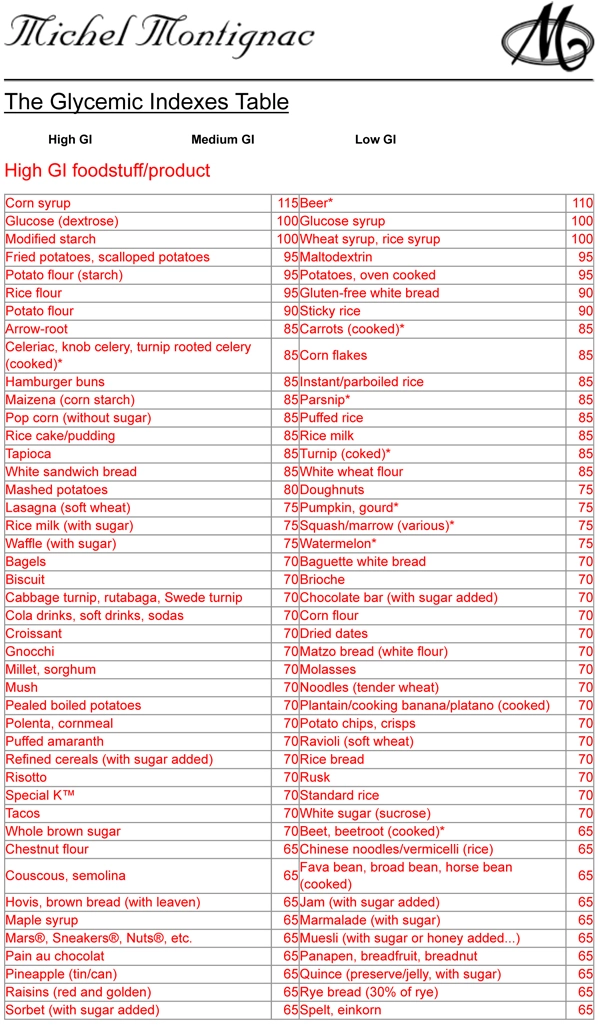
301 Moved Permanently
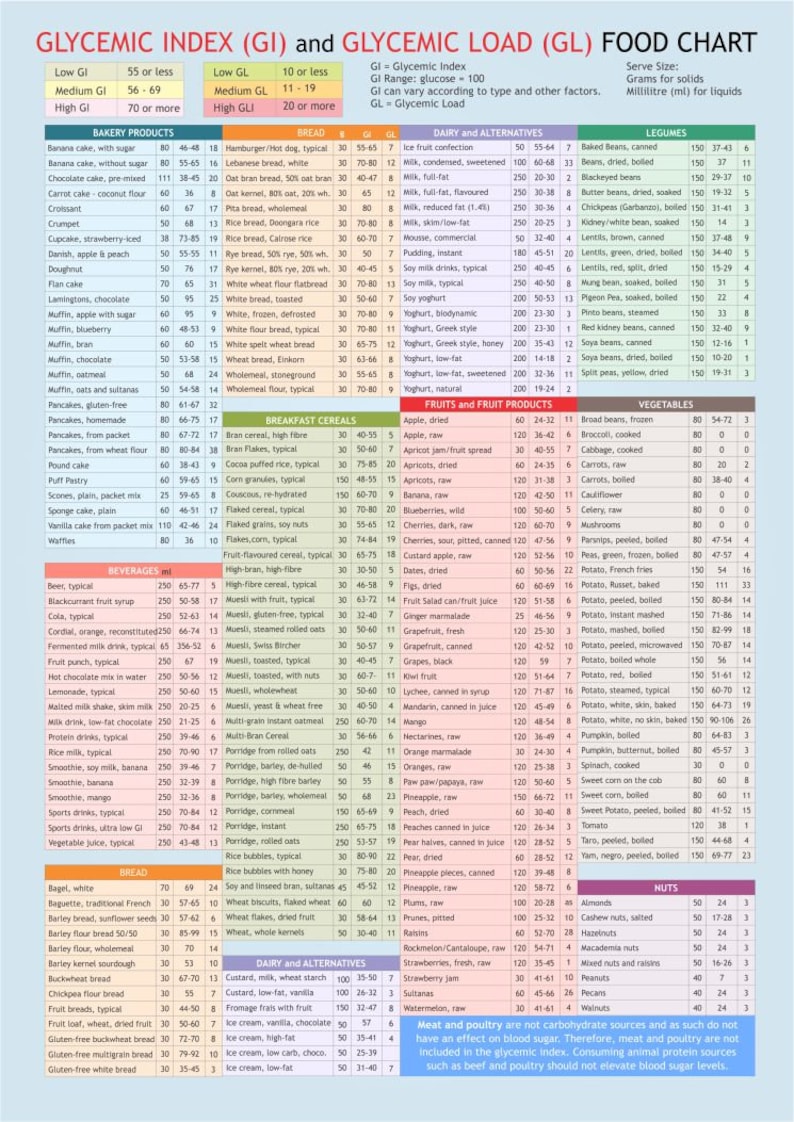
Glycemic Index Glycemic Load Chart Shopping List Printable Etsy
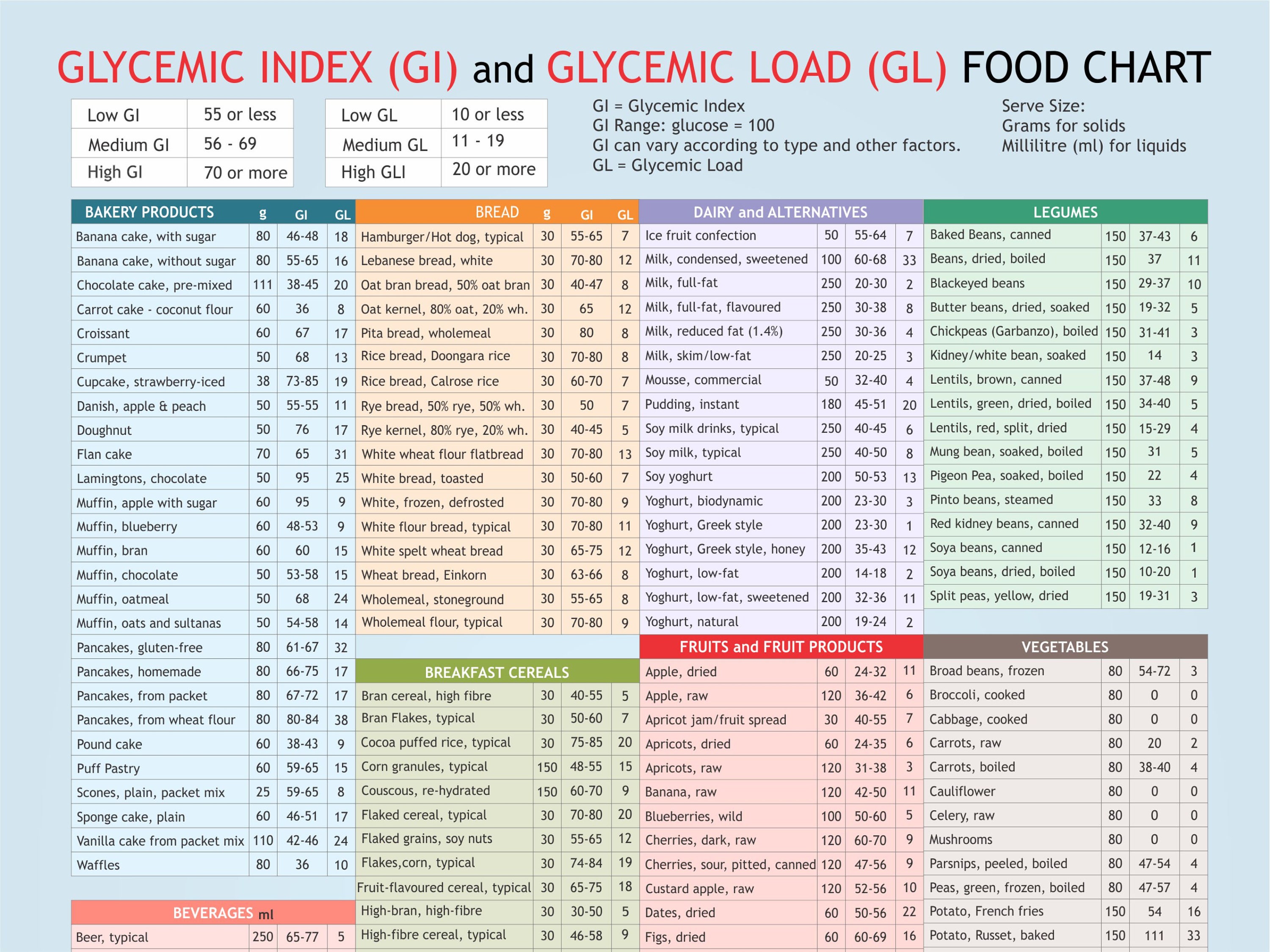
Glycemic Index, Glycemic Load, Food List Chart, Printable Planner
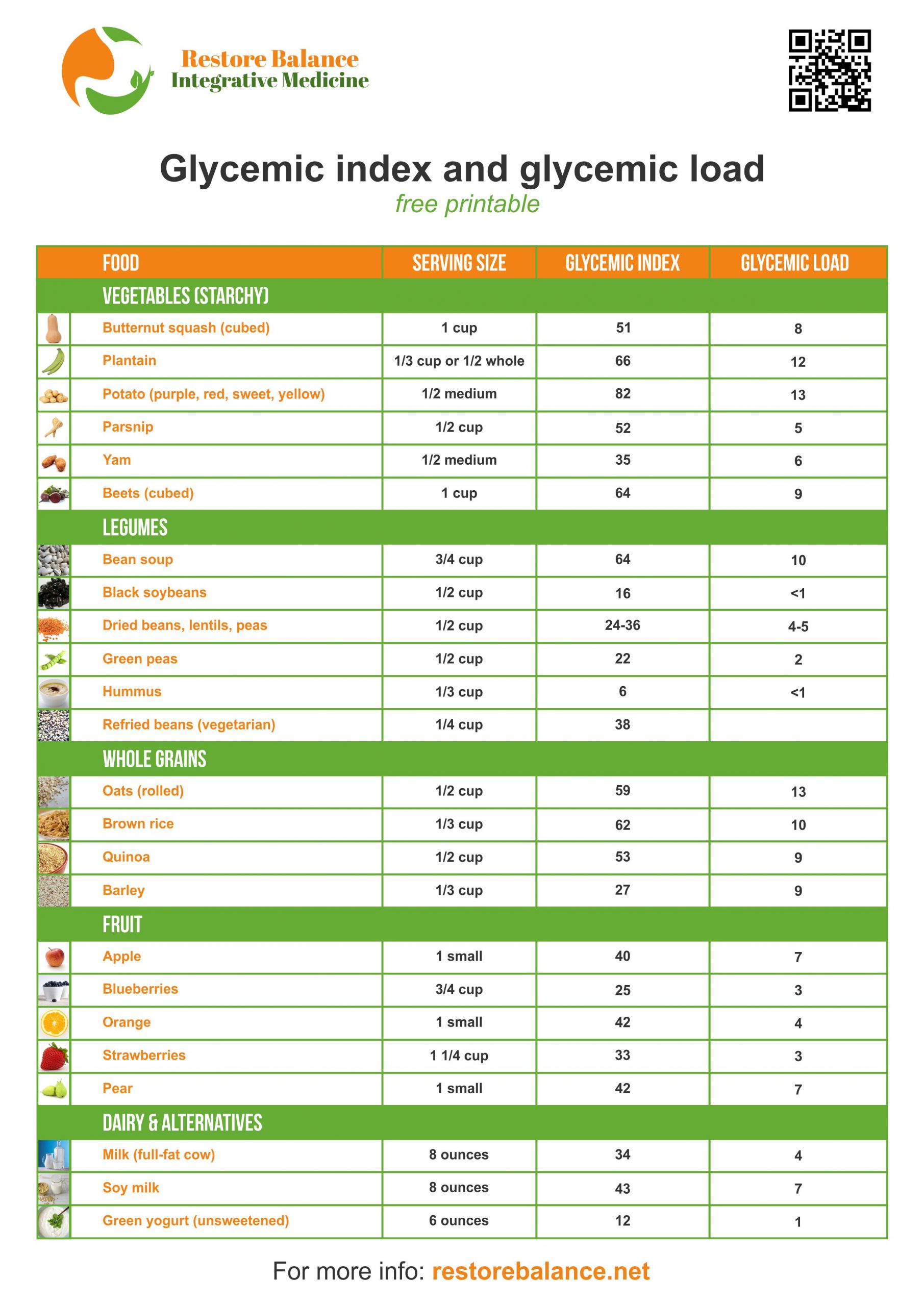
Glycemic index and glycemic load free printable Restore Balance
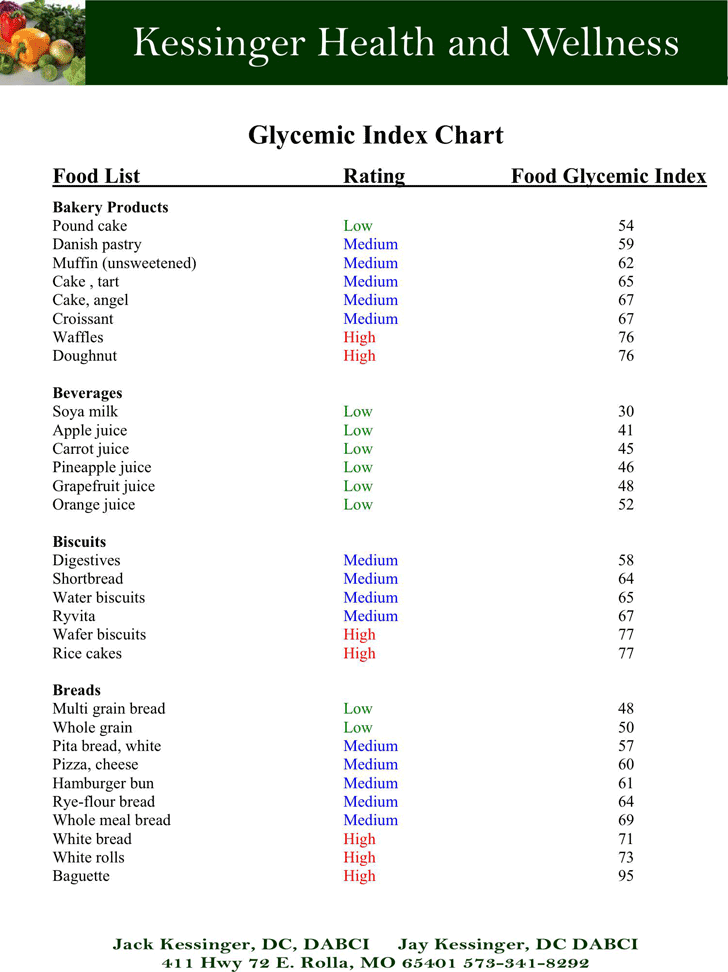
Printable Glycemic Index And Load Chart Pdf

Printable Glycemic Index Food Chart
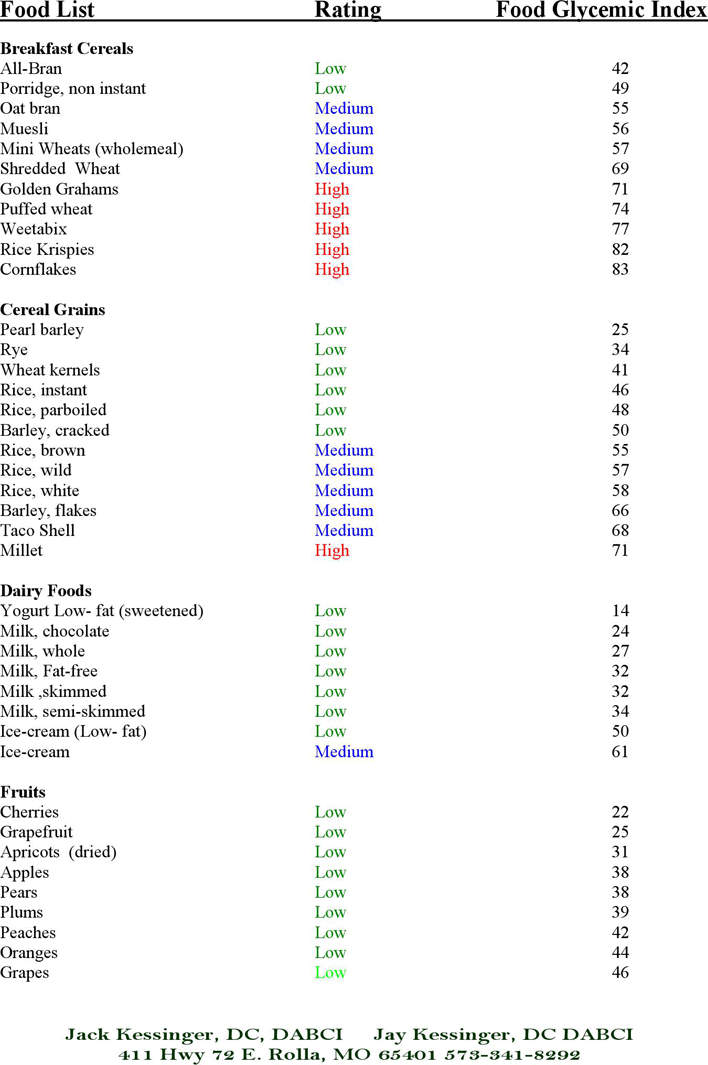
Printable Glycemic Index Chart
It Is A Sign Of The Quality Of Carbohydrates In The Food.
Foods Are Categorized As Low Gi (55 Or Less), Medium Gi (56 To 69) And High Gi (70 Or More).
Web A Gl Below 10 Is Considered “Low”, From 11 To 19 “Moderate”, And Above 20 Is “High” (See Table 1).
The Glycemic Load (Gl) Adds The Amount Of Carbohydrate (Quantity) Into The.
Related Post: